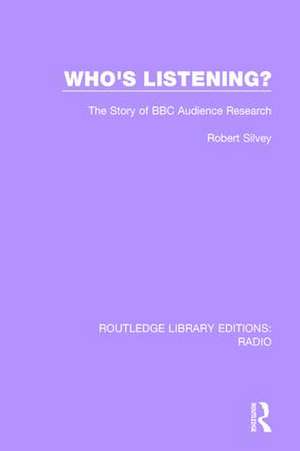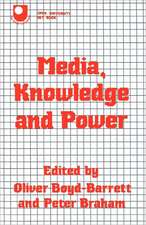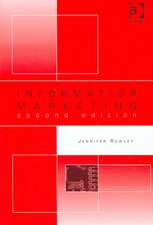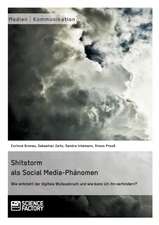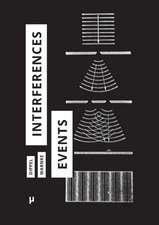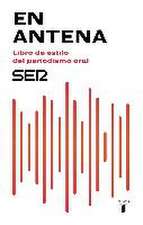Who's Listening?: The Story of BBC Audience Research: Routledge Library Editions: Radio
Autor Robert J.E. Silveryen Limba Engleză Paperback – 10 apr 2018
| Toate formatele și edițiile | Preț | Express |
|---|---|---|
| Paperback (1) | 303.92 lei 6-8 săpt. | |
| Taylor & Francis – 10 apr 2018 | 303.92 lei 6-8 săpt. | |
| Hardback (1) | 764.20 lei 6-8 săpt. | |
| Taylor & Francis – 23 sep 2016 | 764.20 lei 6-8 săpt. |
Preț: 303.92 lei
Nou
Puncte Express: 456
Preț estimativ în valută:
58.16€ • 60.09$ • 48.41£
58.16€ • 60.09$ • 48.41£
Carte tipărită la comandă
Livrare economică 26 martie-09 aprilie
Preluare comenzi: 021 569.72.76
Specificații
ISBN-13: 9781138215689
ISBN-10: 1138215686
Pagini: 220
Dimensiuni: 156 x 234 x 12 mm
Greutate: 0.32 kg
Ediția:1
Editura: Taylor & Francis
Colecția Routledge
Seria Routledge Library Editions: Radio
Locul publicării:Oxford, United Kingdom
ISBN-10: 1138215686
Pagini: 220
Dimensiuni: 156 x 234 x 12 mm
Greutate: 0.32 kg
Ediția:1
Editura: Taylor & Francis
Colecția Routledge
Seria Routledge Library Editions: Radio
Locul publicării:Oxford, United Kingdom
Public țintă
Postgraduate and UndergraduateCuprins
1. Genesis 2. The BBC in Labour 3. Sampling People 4. First Fruits 5. Numbering the People 6. Audience Research in Wartime – I 7. Audience Research in Wartime – II 8. From War to Peace 9. P. & D. 10. Television: the Last Years of the Monopoly 11. Enter ITV 12. Post-Pilkington
Descriere
This book, first published in 1974, is the story of BBC Audience Research, a behind-the-scenes activity that has always been the subject of some curiosity. It describes the early, tentative experiments, designed both to develop ways of applying the techniques of social research to broadcasting and to win the confidence of BBC staff. The way World War II, which deprived programme planners of many of their familiar landmarks, acted as a fillip to audience research, which emerged at the end of the war as an established and accepted adjunct to broadcasting, is described in detail.
